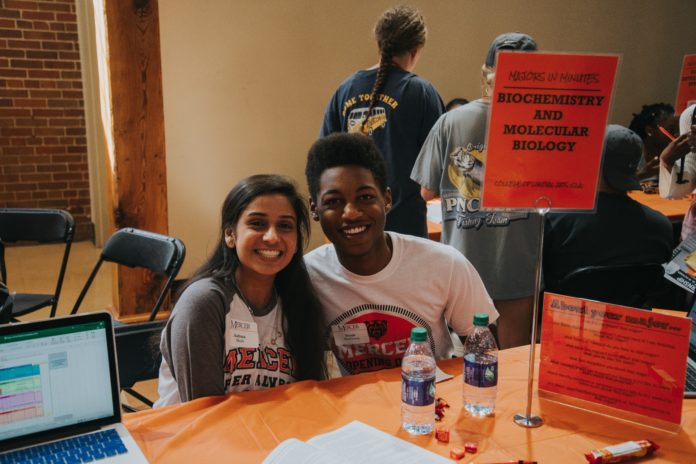
Dear Kelly,
I have really had a tough time choosing a major. I’m in my sophomore year, and I’m still undecided. It just feels like I’m making choices that will affect the rest of my life. How do I find which major best suits me?
For some, the choice of a major may seem like a simple task. They may have always aspired to go into a particular field or have truly excelled in a particular subject and decided that’s where they want to focus their attention. For others, however, the choice can be difficult, especially if they are interested in an array of different careers. The decision can feel like making a life choice that you can’t change once you make it.
For me, I always wanted to work in education. When I reignited my journey to a bachelor’s degree just four years ago, I knew exactly where I wanted to focus my attention. What I didn’t realize, however, is how the choice of where I would end up when I earned my degree would transform over time. As my journey progressed so did my aspirations about the future. In the beginning, I wanted to eventually be a director of a child care facility, then I decided I wanted to be an elementary educator, and now I want to work in higher education.
You see, even for those of us who know exactly what major we want to pursue, our end goal can fluctuate and change based on what we learn, experience or are introduced to. So, if you are like this reader, there are some steps I encourage you to take when trying to determine a major.
First, I don’t want you to panic or feel like you’re behind. Instead, begin to make a list of all the careers you can see yourself in. Write down every job you’ve ever considered. Are there any connections between the careers? When reviewing your list, think about what it is about each career field that excites you. Ask yourself how your strengths relate to those fields. For instance, if you are particularly strong and truly enjoy math, how does that relate to what you aspire to be? An important thing to consider, as well, is the longevity of that career. Will it be obsolete in 10 or 20 years? Also, if you know people who work in those fields, talk to them. Ask them if they enjoy their job and what challenges they experience.
Once you have your list of possible careers, begin comparing them with majors. I encourage you to visit Mercer University‘s Center for Career and Professional Development website and click on “What Can I Do With This Major?” The Center for Career and Professional Development is an incredibly valuable resource to help you determine your career goals. This particular link on its website lists each major that colleges and universities offer and connects it with careers that are associated with that major. By visiting this website, you may discover that certain majors may be associated with the careers you have on your list. This would give you the chance to declare a major and begin your journey, while still pondering where that journey may lead you.
Which brings me to my best advice: Begin to build a team of people who will help determine the best major for you. One member of that team needs to be your adviser. They are in the business of helping students determine where they want to be. They will guide you in your decision and provide you with a list of possible majors that may appeal to you. Next, set up an appointment with the Center for Career and Professional Development. They will match you with a career consultant who will help you build a career goal plan and give you advice and guidance as you choose your future major. Also, when building your team, don’t forget to add any professors who have inspired you or who you have had a great rapport with. Some of my greatest influencers and advisers throughout my journey have been professors. Of course, include your parents and family members because they know you best.
Finally, acknowledge that it is OK to change your mind. Don’t feel that once you choose a major you are stuck. Many students change their mind once they begin a program; it happens all the time. Sometimes you don’t know until you try, so once you have decided on a major, allow yourself to be OK with the fact that once you begin your chosen path, your goals may transform, and you may choose a different path later on.
The one thing to remember is that you have begun the journey to enhancing your future. You already have embarked on the adventure and now just need to focus on how you want to navigate it. Begin that process by concentrating on where you want to be, choosing what paths are right for you, and leaning on those individuals who will mentor and counsel you and have your best interest at heart. In the end, you’ll be happy you did.
As always, I wish you health, happiness and continued success throughout your journey!
Each week Kelly Browning, an early childhood education/special education major and student ambassador at the Henry County Regional Academic Center, answers questions from the Mercer community. Email her at kelly.l.browning@live.mercer.edu or fill out our online form to submit your question anonymously.









